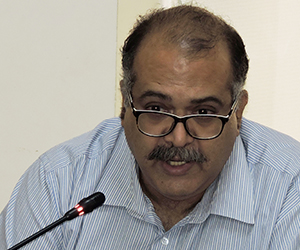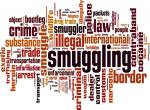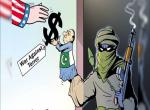Hardly anyone will dispute that May 2011 has been a mensis horribilus for Pakistan. The events that transpired during the month – the US raid to kill Osama bin Laden and the subsequent pressure on Pakistan to start delivering on its commitments in the war on terror, the massive spike in retaliatory terror attacks that culminated in the fidayeen attack on the naval airbase, PNS Mehran, and the brutal murder – all fingers point to the ISI – of journalist Saleem Shehzad who exposed the infiltration by Al Qaeda into the Pakistani armed forces – have shaken to the core the state and society of Pakistan. More significantly, these developments could force the Pakistani political and military establishment to make some profound choices and take some critical decisions that will determine the future course of the country. The portents and prognosis is, however, not very good because no matter what choices and decisions are made, things are likely to get much worse before they get better, if at all.
The problem for Pakistan today is that it is caught in multiple binds that infinitely complicate the selection of the options before the country. The national economy is on the verge of a meltdown. Running on empty, the economy is heavily dependent on foreign aid, which is either not coming or is trickling in albeit with political riders and economic reform conditionalities which the Pakistani authorities are finding difficult to accept and impossible to reject. There is a deep disconnect between the Islamist inclinations of the people and influential sections of the establishment on the one hand, and the compulsions of the state to be seen to be combating the inroads being made by the Islamists, on the other. Enormous pressure is being mounted on Pakistan from the US to end its double-game in the war on terror and take ‘specific actions’ and ‘decisive steps’. These include launching a military operation in North Waziristan against some of Pakistan’s ‘strategic assets’ like the Haqqani network and assisting the US in apprehending or eliminating four or five of the most wanted Al Qaeda and Taliban terrorists. At the same time, the state is being challenged as never before by the Islamist terrorists who have mounted spectacular attacks all over the country. There are fears that compliance with US demands could result in ferocious retaliation by the terror networks, who have not only infiltrated the security services but also enjoy sympathy and support from a cross-section of Pakistani society.
The chasm between the effete and inefficient civilian government and the people is increasing. Even as the opposition is growing restive and inching towards forcing the government out of office, public confidence in democracy, parliamentary system, and most of all on the states institutions has plummeted. Unlike the past, when the people looked towards the army as saviours, the Abbotabad operation, the PNS Mehran attack and now the assassination of Saleem Shehzad by ISI thugs have pulled down the army and ISI’s stock to an all time low. Worse, the military is no longer the dominant force that it was in the past. The army’s dominance is being questioned like never before by the civilians and its armed might is being challenged every day by the Islamist militant groups. Ethnic separatism has reared its head once again in Balochistan and is simmering in Sindh. Sectarian tensions remain high.
Under these circumstances, there are broadly three options before the Pakistani state: one, clean up its act; two, continue to simultaneously ride, for as long as possible, the two boats of fighting terrorism and supporting it at the same time; and three, become a jihadist state. Each of these options will have internal and external repercussions on the Pakistani state.
The first option – comprehensive clean-up – is perhaps the most difficult in the short run, but also the only option that holds any chance for Pakistan eventually emerging as a normal country in the comity of nations. This will involve a complete reversal of all the destructive policies followed by the Pakistani state since it came into existence. In other words, a complete overhaul of social, political, economic, religious and cultural structure that currently exists. Apart from a ruthless purge of the Islamist terror groups of all hues (good and bad jihadists), establishing civilian supremacy over the military will be a sine qua non. All foreign, defence and security policies will have to be determined by the civilian leadership. The detoxification of education system, radical political and economic reforms, massive investment in the social sector (health, education, sanitation etc) institutional reform, including downsizing the military and civilian control over the intelligence agencies, normalisation of relations with India by getting of the Kashmir hobby horse, will have to be undertaken.
No doubt, this is a very tall order which even functional states would find difficult to implement. The capacity of a fragile and dysfunctional state like Pakistan to change course is extremely doubtful. To be sure, this will not be possible without enormous foreign assistance for at least 10-15 years. But even with a Marshall Plan like aid programme of tens of billions of dollars, there are no guarantees if Pakistan will be able to pull through and deliver on all of the above. Despite the difficulties that lie on this path, it offers the Pakistan army a golden opportunity, and perhaps the only opportunity, to prove its patriotism and loyalty to the nation rather than its corporate interests.
Given that the clean-up option sounds like ‘mission impossible’, there will be a natural temptation to take an easier option, i.e. the two boats option. Essentially, this will involve Pakistan continuing pretty much along the path it has followed for so long viz. play both sides of every game, especially in the war on terror. On the one hand, Pakistan will make efforts to combat jihadists inimical to the interests of the Pakistani state, and make a pretence of fighting jihadists with a global agenda in order to keep on the right side of the West and keep the economic and military aid flowing. On the other hand, it will also keep the jihad infrastructure intact and let the jihad factory function, albeit in a controlled manner, so that it continues to churn out ‘strategic assets’ which function as instruments of state policy. The advantage of this policy is that it will satisfy the jihadist urgings of the people and establishment, obviate the need for any major structural reform in the political, economic or social sphere (thereby avoiding the turmoil that accompanies such reform), keep alive its USP – nuisance value of being a nuclear-armed ‘international migraine’ that the international community will be compelled to bail out all the time.
The downside of the ‘two boats’ option is that it might well have run its course and cannot be played for much longer now because the inherent conflicts and contradictions that it entails have started coming to the fore. Simply put, this option will do nothing to arrest Pakistan’s inexorable slide towards the abyss – the economy will remain in an ICU, the polity will remain unstable, the society will continue to be radicalised, the haemorrhaging of the states vitality won’t stop, the power and influence of the Islamist terror groups will continue to rise while that of the state will decline. This option will only delay state failure, but not for very long. If anything, it will make the state so vulnerable that it won’t be able to withstand any major shock and will collapse like a house of cards. A historical parallel is the fall of the Mughal empire to the Sikh armies which took over Lahore without firing a single shot. In the current case, it will be the Islamists who are the most likely candidates to play the role that the Sikhs played in the 18th Century.
The third option is a fast-forwarded version of the ‘two-boats’ option i.e. the Pakistani state decides to become a jihadist state by design rather than by default. Instead of risking a civil war by confronting the jihadists or undergoing the slow and torturous process of losing control to the jihadists, the Pakistani establishment could well decide to defy the Americans and close ranks with their Islamist brethren for the ‘glory of Islam’. This means that the Pakistanis will end cooperation in the war on terror, block the supply routes of ISAF forces in Afghanistan, forbid all drone strikes and other offensive actions by the Americans inside Pakistan, openly lend support to the Taliban in Afghanistan and enter into some sort of power sharing arrangement with the Pakistani Taliban groups that for some time at least keeps the Pakistan army in the driving seat. The fiction of democracy, civilian supremacy, rule of law and other such highfaluting concepts will end. Shariah law, as defined by the most reactionary mullahs, will be imposed. Shias and other sectarian groups will be declared non-Muslim. Women will be confined to homes. In short, an Islamic Emirate of Pakistan, which will be a clone of the Islamic Emirate of Afghanistan, will replace the Islamic Republic of Pakistan.
There will of course be severe repercussions of this because defying the Americans and the West is the easier part; it is the day after which is the difficult part, because that is when Pakistanis will realise the difference between smoking grass (which probably has induced the nationwide hallucination of being a destroyer of great empires) and eating grass (a taste for which the Pakistani palate has still to cultivate). Defiance of the West is predicated on support from China and the ‘brotherly’ Muslim countries like Saudi Arabia, Iran etc. But this could well be a pipedream because neither China nor the Muslim world can really replace the West. Nor are they likely to back Pakistan if it means jeopardising their ties with the West.
Once the initial euphoria of having taken on the Americans and defying them is over, the existential crises will have to be handled especially since there is a strong possibility of global sanctions being imposed on Pakistan, isolating it completely. If this happens, the economy will collapse. Trade, investment, and business will come to a grinding halt. There will be massive shortages of fuel, energy and food. The only thing in surplus will be the pride of having reclaimed sovereignty and finally having achieved a truly Islamic dispensation. It is of course another matter that there will be far greater violence, destruction and devastation that will result from the jihadi option as compared to the clean-up option. But that will be in the future, something that is always at a discount in Pakistan where policies and strategies are made from the perspective of tiding over today’s problems rather than anticipating the effects of wrong policies in the months and years ahead.
Except for the ‘clean-up’ option, the collapse of the Pakistani state as currently constituted is inevitable. While it is impossible to predict how the Pakistani cookie will crumble – will it split along ethnic lines, will it implode, will it give way to warlordism, will the Al Qaeda/Taliban takeover, or will it be a combination of all of these – one thing is certain: when it comes, the collapse will be sudden, practically overnight. What will be the trigger is again not clear. It could be a split in the army with a couple of Corps Commanders or senior generals deciding to take over power or challenge the GHQ; it could be an ordinary Tunisia-type incident that sets into motion a domino that brings down the edifice of the state; it could be a natural calamity; it could be another Abbotabad type unilateral action by the US either to snatch and kill another high-value target or to retaliate against a terror attack on US soil by terror groups based in Pakistan; it could be a US withdrawal from the region which emboldens the Islamists to try and capture power in Pakistan; it could be the devastating effect of another global economic meltdown; in short, it could pretty much be anything.
While India needs to prepare to handle the fallout of a ‘failed’ Pakistan, even before such a cataclysmic development occurs, there will be serious threats to India’s security. The more conditions in Pakistan deteriorate, the more the Pakistani military and political establishment sees power slip out of its hands and the more the Pakistan army loses the confidence and trust of the people, the greater the temptation to indulge in adventurism against India to make the people close ranks behind the military in Pakistan. The adventurism could be another Kargil, another Mumbai, another Parliament-type attack, or even a new and even horrific terror attack (‘dirty bomb’?). India also needs to be alive to the perverse mindset in large sections of the elite and establishment of Pakistan that has resolved to take down India if Pakistan is going down the tube. To be able to guard against any such eventuality, India needs to put in place systems to minimise, if not prevent, the damage that is likely to be caused. What is more, India needs to work out its counter-responses, political, economic, military and diplomatic. This should have been done yesterday. But even if it is done today, it should be okay. One thing India doesn’t have is the luxury of time because tomorrow might be too late.
----------------------------------------
Published Date : 3rd June, 2011










Post new comment